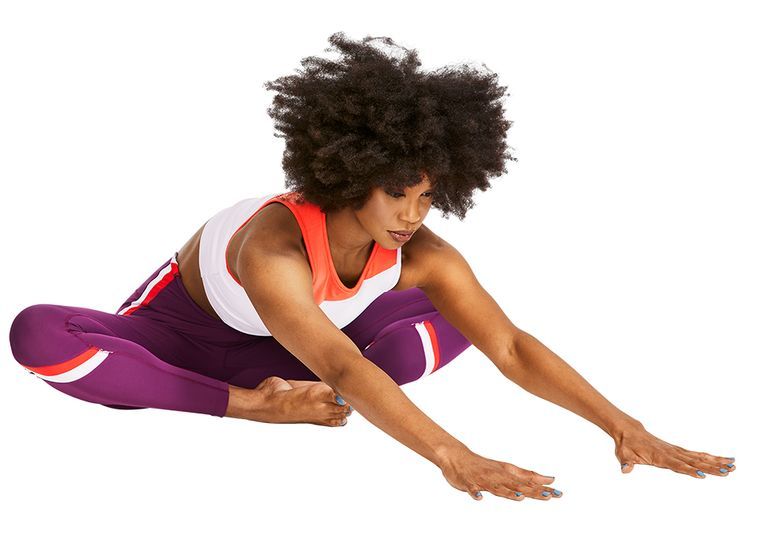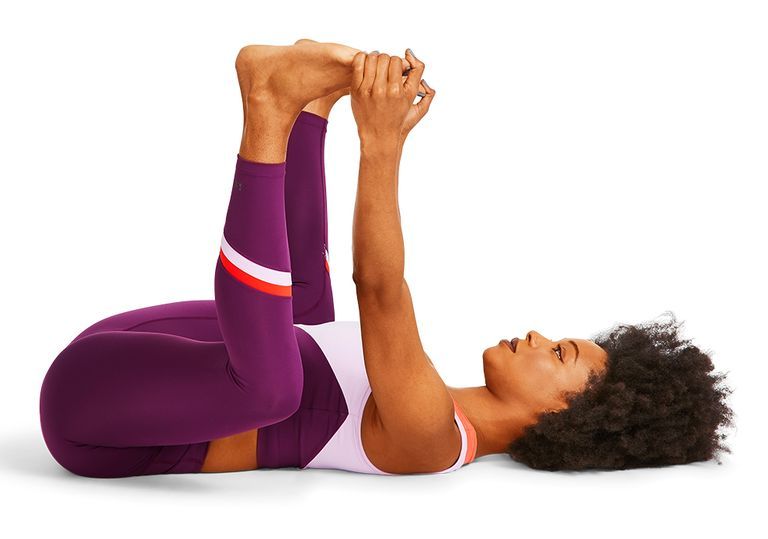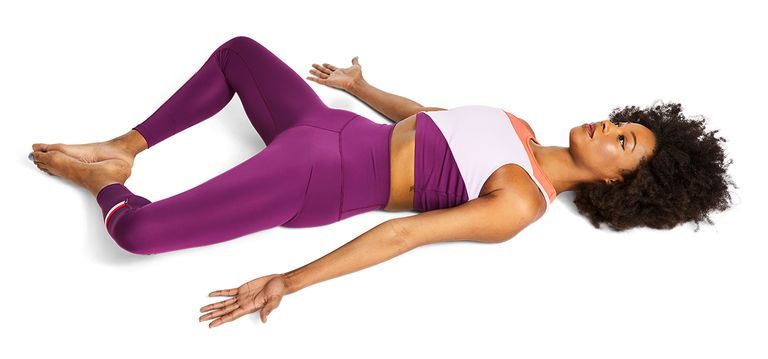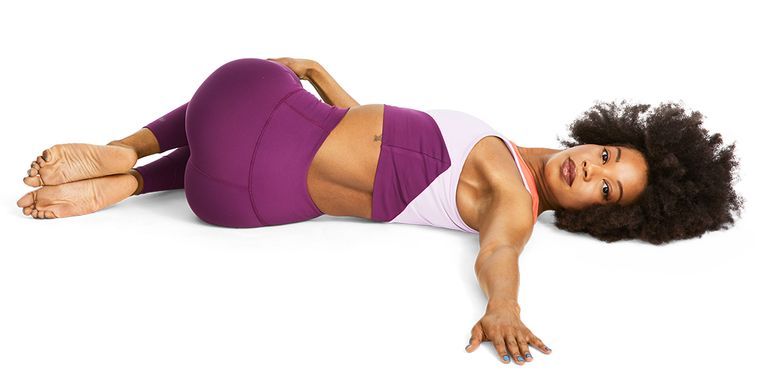Doing These 4 Yoga Poses Before Bed Can Help You Sleep Better
The real power yoga? A flow that helps you sleep soundly, so you wake up ready to seize the day (study after study confirms the link). Do this series from yoga instructor and massage therapist Amanda Kerpius, inspired by Healing Yoga (by Loren Fishman, MD), 30 minutes before bed to help quiet your nervous system. Zero in on your breath for instant meditation.
For each pose, focus on longer exhalations and shorter inhalations. Try breathing in for two counts and out for four. This technique helps you relax and sleep better, says Kerpius.
Seated Bound Angle Fold
Sit on floor, bringing soles of feet together and letting knees fall to the sides. Take a deep breath in and lift chest, then exhale as you fold over legs, extending arms forward if comfortable. Hold for two to three minutes. A head-down pose, like this one, can ease anxiety, Kerpius notes.
 Kat Wirsing
Kat Wirsing
Happy Baby
Lie faceup on floor, then lift legs and bend knees toward armpits. Grab outside edges of feet with hands, face soles of feet toward ceiling, and soften lower back to floor. Take deep belly breaths, feeling your back expand on floor. Hold for one to two minutes. The infant-inspired posture releases tension in your lower back.
 Kat Wirsing
Kat Wirsing
Supine Bound Angle
Store stress in your hips? This setup will let that ish go. Lie faceup on floor, bend knees, and bring soles of feet together so knees fall to the sides and outer edges of feet stay on floor. (Place a pillow under each thigh if you need more support.) Rest arms by sides, palms facing ceiling. Hold for three to four minutes.
 Kat Wirsing
Kat Wirsing
Supine Twist
Lie faceup on floor and lift knees toward chest. Gently lower both knees to right side of body and extend left arm out to the left, keeping both shoulders on floor (add a pillow under left shoulder if needed). Hold for one to two minutes. Return to start, then repeat on the other side. Twists are incredibly centering (once you’re back in neutral).
 Kat Wirsing
Kat Wirsing
This article originally appeared in the March 2020 issue of Women’s Health.
Source: Read Full Article


